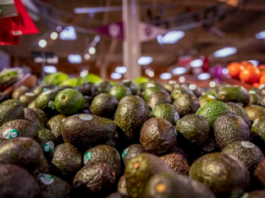Grocery buyers are experiencing deja vu as the cost of those Grade A eggs has increased recently, only two years after egg prices hit all-time highs.
According to consumer price index statistics released Wednesday, the average retail price of eggs in the United States has increased by 38% since November 2023. Just last month, prices went up 8%.
According to the U.S. Bureau of Labor Statistics, the price of a carton of twelve large Grade A eggs increased from $2.14 in the previous year to $3.65 in November.
Economists and industry analysts attribute the spike to two main factors: the strong consumer demand that is normal during the winter holiday season, and avian flu, which has decreased the availability of eggs.

Brian Moscogiuri, vice president of egg supplier Eggs Unlimited, stated that there is a genuine possibility that prices may approach all-time highs.
The price of a dozen grade A eggs increased from $1.93 in January 2022 to $4.82 in January 2023.
With an annual inflation rate of 60% in calendar year 2022, eggs stood out during a period of significant pandemic-era inflation, according to CPI statistics. They even became part of the zeitgeist: during the Grammy Awards in February 2023, pop sensation Taylor Swift promised comedian Trevor Noah that her followers would “get on it” to help bring down the price of eggs.
The impact of an’serious’ avian flu epidemic on egg pricing
Highly pathogenic avian influenza, also referred to as bird flu, is a major cause presently, as it was in 2022–2023.
Among birds, notably chickens, bird flu is a deadly and highly contagious illness. According to Moscogiuri, the United States is now experiencing a “serious outbreak.”
According to specialists, the illness has persisted since it arrived in the United States in late 2021. According to Moscogiuri, the last time avian flu had affected commercial farms’ egg-laying hens was in 2015.
According to data from the Centers for Disease Control and Prevention, avian flu killed almost 33 million commercial egg layers in 2024.
According to Ryan Hojnowski, an egg expert at the agricultural market research company Expana, that has “caused an egg supply shortage.”
Approximately 15 million birds, or over half of the 2024 commercial egg layer fatalities, have happened since October 15, according to CDC statistics. Expana reports that since mid-October, wholesale egg prices have increased by 97%.

Andrew Novakovic, a professor of agricultural economics at Cornell SC Johnson College of Business, stated that if there is only one virus, it is likely that almost all of the birds are affected or will become infected in the near future.
The holidays of Thanksgiving and Christmas increase demand for eggs.
Additionally, the shortfall of eggs is accelerating toward the busiest time of year for consumer demand. “As consumers tend to bake around the Thanksgiving and Christmas holidays, Q4 is when we typically see the strongest demand for eggs,” Hojnowski stated.
Prices have increased due to a combination of decreased supply and high demand, according to experts. “I think we’ll see some [price] softening once we get past this holiday effect,” Novakovic stated. However, experts warned it is hard to forecast the trajectory.

First, it’s unknown how long avian flu will last. The CDC reported “several recent human cases in U.S. dairy and poultry workers” in addition to recent outbreaks in U.S. dairy cows. However, according to the CDC website, the public health risk was “low” as of December 11.
In an effort to monitor and control the virus, the U.S. Department of Agriculture issued a federal order on Friday mandating that the milk supply in the United States be tested for bird flu.
According to Novakovic, “it’s a little hard to accurately forecast how it’s going to progress, like any infectious disease.”



